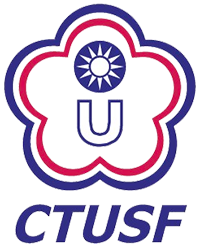Sports & Exercise Research Volume 20 Number 1
Author:Sheng-Hsien Feng ; Feng-Tzu Chen ;Tai-Sheng Chen ;Jui-Ti Nien ; Yu-Kai Chang
Period/Date/Page:Vol. 20 No. 1 (2018 / 03 / 31) , P16 - 28
DOI:10.5297/ser.201803_20(1).0002
Effects of Planning-Related Executive Functions in Preterm Born Children Following Acute Exercise at Moderate Intensity
Abstract: It has been found that preterm born children are associated with reduced executive functions. Besides, research indicated that an acute exercise is a potential approach for improving the executive functions in children. However, whether these beneficial effects of exercise can be extended to preterm born children is remains unknown. In addition, majority of the studies examining the association between acute exercise and cognitive functions focused only on some specific executive functions, such as inhibition and cognitive flexibility, but no studies examined the planning. The purpose of this study was to explore the effects of acute exercise on the planning aspect of executive functions in preterm born children. Twenty preterm born child participants were recruited and were assigned into either experimental or control sessions by a counterbalanced design. In the experimental session, participants performed aerobic exercise on a cycling ergometer. Exercise comprised of a 5 minutes warm-up, 20 minutes exercise at an intensity of 60% to 65% heart rate reserve, and a 5-minute cool-down. In the control session, participants were asked to watch videos. Immediately following each session, participants were asked to perform a Tower of London task. Results revealed that participants in the exercise session exhibited a lesser total move score, shorter total executive function time and shorter total problem-solving time compared to the participants in control session. However, there was no significant difference between the sessions in total correct scores and total initial times. We concluded that the acute exercise performed at moderate intensity enhanced the quality of the subjects’ executive planning and efficiency of planning. The underlying mechanism might then explained as when individuals undergoing this type of exercise modality enhanced their mental arousal and subsequently beneficial to executive functions. We recommend health and exercise professionals can use exercise as a prescription to improve the cognitive function of preterm born children. (Full text)




